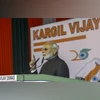The objective of the Agnipath scheme is to keep the Army young and "continuously fit for war," said Prime Minister Narendra Modi during his address on Kargil Vijay Diwas.
Following criticism from several opposition parties over the Agnipath scheme, Prime Minister Narendra Modi defended the recruitment scheme on Friday. During his address in Ladakh's Kargil on the 25th anniversary of Kargil Vijay Diwas, PM Modi said the Army had been demanding the scheme for years.
"The country has felt the need for major reforms in the defence sector for decades. The Army has been demanding this for years, but unfortunately, it was not given enough importance earlier. The Agnipath scheme is also an example of the necessary reforms done in the Army. For decades, discussions have been going on in Parliament about making the Army young," said PM Modi.
He added that the objective of the Agnipath scheme is to keep the Army young and "continuously fit for war." The PM pointed out that the average age of soldiers in India being higher than the global average was a concern raised over the years, and Agnipath resolved the matter.
"The average age of Indian soldiers being more than the global average has been a cause of concern. That is why this issue has also been raised in many committees for years. However, the will to solve this challenge related to the country's security was not shown earlier. The country has addressed this concern through the Agnipath scheme," he said during the address.
The Prime Minister also criticised the opposition parties opposing the scheme for "politicising" a sensitive issue related to national security. He said, "Those who are misleading the youth of the country. Their history is proof that they don't care about soldiers. These are the same people who lied on OROP by showing a meagre amount of Rs 500 crore. It is our government that implemented the charges. More than Rs 1.25 trillion was given to ex-servicemen."
More From This Section
The PM continued his attack on the opposition, saying, "Some people used to think that the Army means saluting politicians, doing parades, but for us, the Army means the faith of 1.4 billion countrymen... These are the same people who weakened our Army by committing scams worth thousands of crores, who wanted the Air Force to never get modern fighter jets, who had made preparations to scrap the Tejas fighter plane."
Meanwhile, the PM also highlighted the reforms made in the defence sector during the last 10 years. "Today, a significant share of defence procurement is being given to the Indian defence industry. Additionally, 25 per cent of the research and development budget in defence has been reserved for the private sector. As a result of these steps, India's defence production has now exceeded Rs 1.25 trillion... Due to these reforms, our armed forces are now more capable and becoming self-reliant," he said.
Agnipath scheme: Army's reaction to PM's speech
Reacting to PM Modi's speech, Air Marshal SP Singh (retired) told ANI, "PM Modi clarified it very well... Give the (Agnipath) scheme a chance... And like the PM said, it is the decision of the armed forces. It is a scheme endorsed by the government, and the country is accepting it.... It is a very good scheme..."
However, just last year, former Army Chief General MM Naravane had said that the armed forces were taken by surprise by the government's formulation of the Agnipath scheme for the short-term recruitment of soldiers, airmen, and sailors.
"We in the Army were taken by surprise by this turn of events, but for the Navy and Air Force, it came like a bolt from the blue," Gen Naravane wrote in his memoir 'Four Stars of Destiny'. He said that it took him some time to explain to the IAF and Navy chiefs that his proposal had only been Army-centric and that he was equally surprised by these developments.
What is the Agnipath scheme?
The Agnipath scheme was rolled out in June 2022 to lower the age profile of the armed forces. It held that only 25 per cent of around 46,000 soldiers, airmen, and sailors to be selected in a year would serve for another 15 years after the first four years.
Recommended by several expert committees, including the Kargil Review Committee (2000) and the Shekatkar Committee (2017), the Agnipath scheme sought to reduce the average age of India’s army personnel from 32 to 26 years. It is also aimed at lowering the government's spending on Army pensions. Therefore, the scheme provides a one-time payment of Rs 11.71 lakh to Agniveers on completion of a four-year tenure, but no gratuity or pension.

)